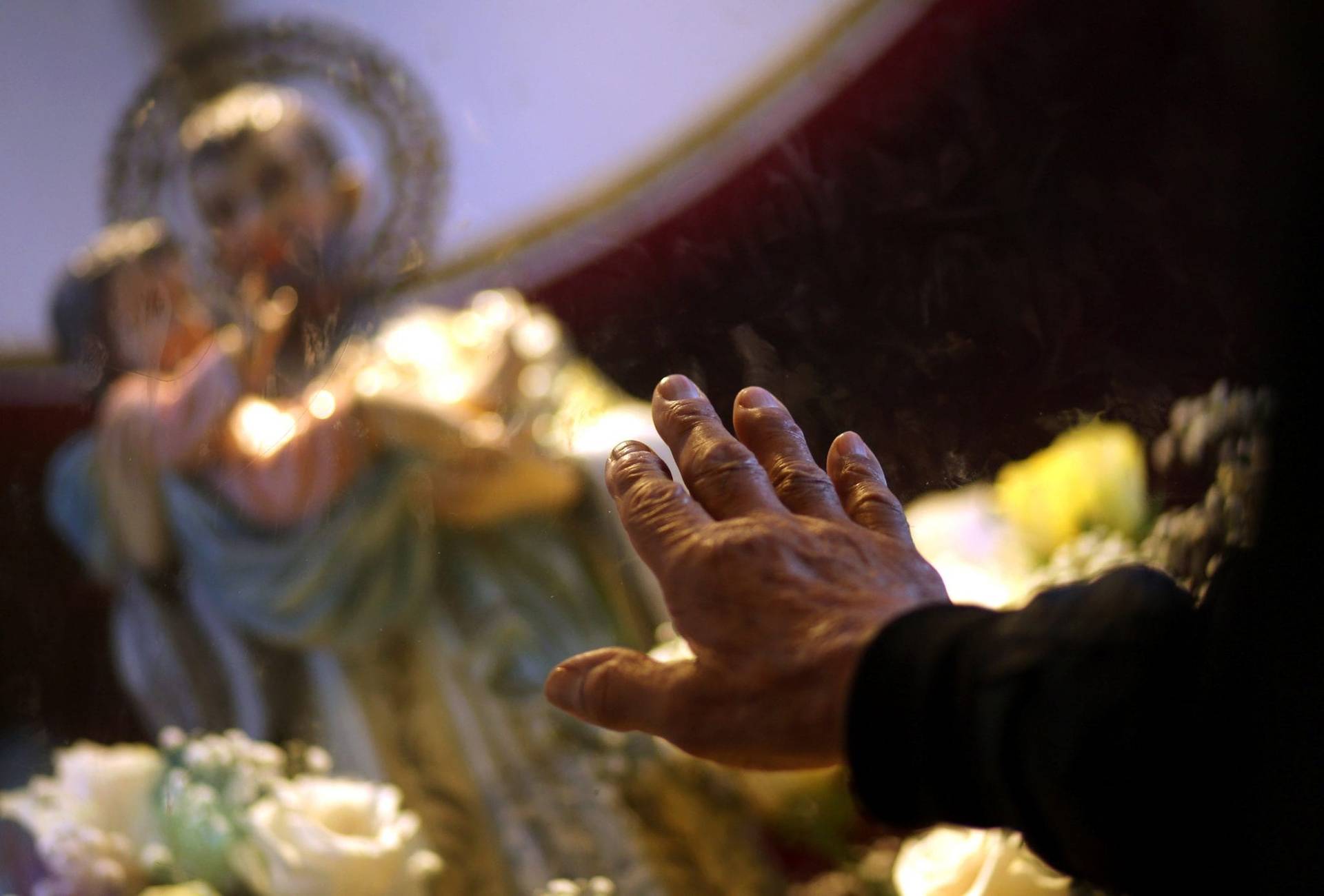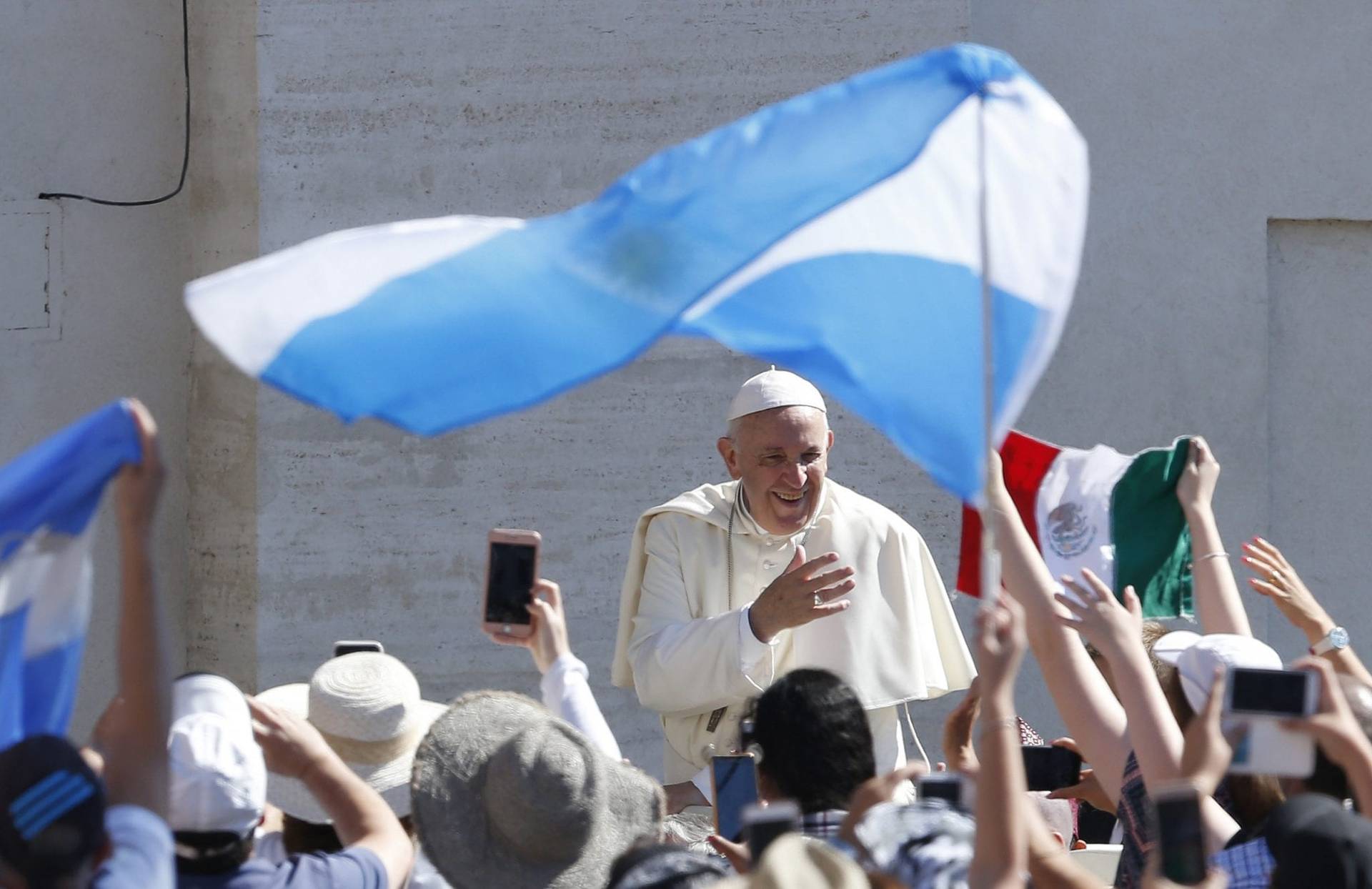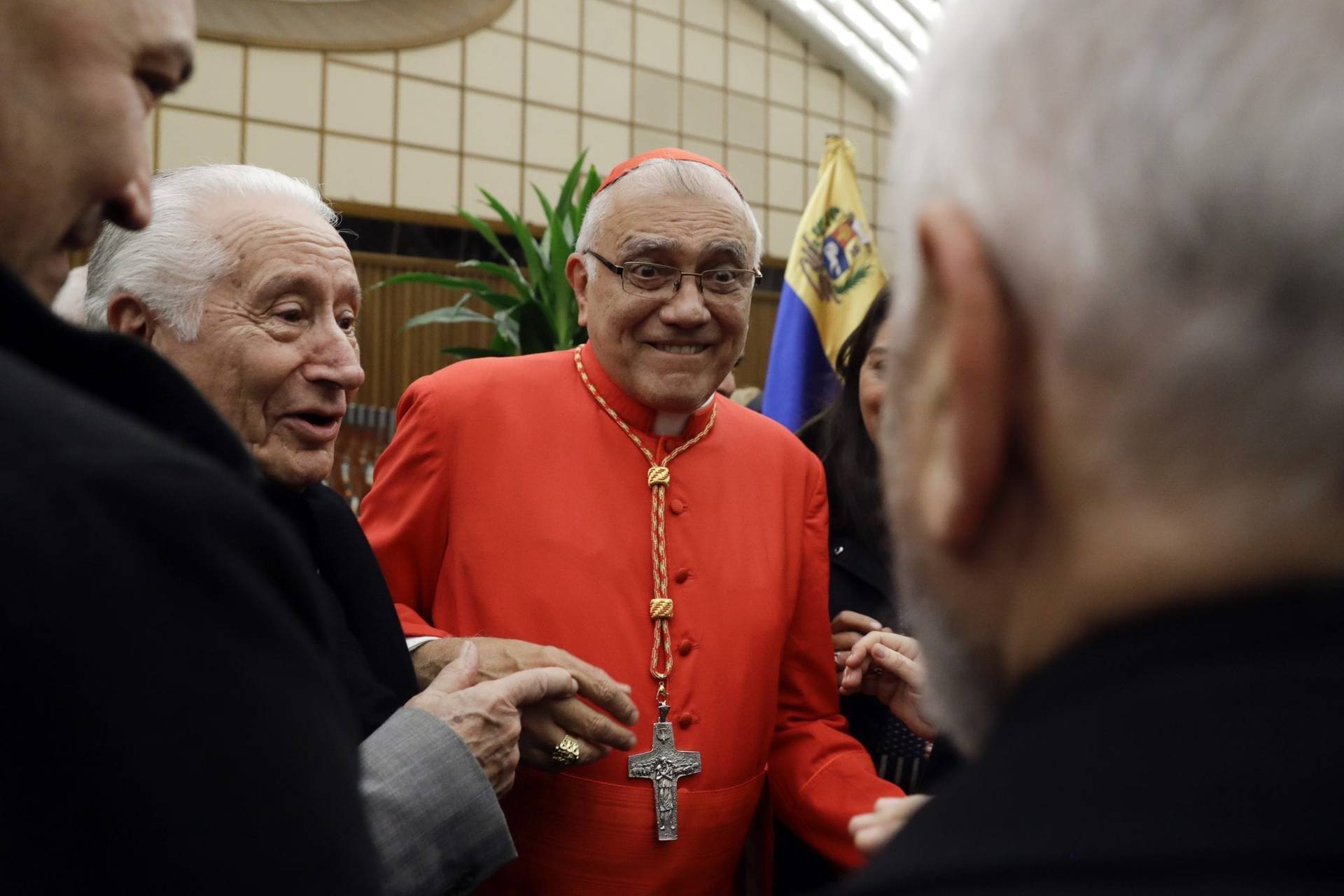ORAN, Argentina – Bishop Gustavo Zanchetta, a prelate from Pope Francis’s native country whom the pontiff brought to Rome and gave a Vatican job in 2017 and who’s now facing charges of sexually abusing seminarians, is expected to appear in court in the diocese he once led on Thursday.
Zanchetta has been formally accused of “aggravated continuous sexual abuse” of two young men, and a judge previously ordered him to remain in Argentina and stay away from the alleged victims and their families. The charges carry a maximum penalty of 10 years in prison.
Oran’s prosecutor, María Soledad Filtrín, presented the judge with a 30-page report containing a summary of facts, evidence and testimony collected against the bishop, which she believes are enough to bring the case to trial.
Crux has confirmed that the bishop is expected in court on Thursday, at 10 am local time (one hour ahead of Eastern Daylight Time in the U.S.). The hearing could determine if he’s to be tried for the charges. If he fails to attend, he could await the trial in prison.
The first seminarian formally accused Zanchetta on Feb. 6, and the second a week later. They said the abuses began in 2016 and 2017, respectively.
Filtrín, the prosecutor, has charged that Zanchetta acted “with malicious intent” to have sexual involvement with the victims, “initiating the deployment of acts and maneuvers of seduction, manipulation and preeminence.” The fact that he was the victims’ superior, she said, inspired “reverential fear through inappropriate touching with a clear sexual significance, breaking the will of [the men] fearful of losing their status as seminarians and ending their vocation to religious service.”
RELATED: Bishop’s phone porn didn’t involve minors, but questions remain on move to Vatican
Zanchetta’s religious status, the prosecutor said, should be taken into consideration, as his position demanded “the duty to act with rectitude and adherence to moral and religious norms with greater zeal than that of a common citizen.”
It’s unknown where Zanchetta has been in recent months. A judge had banned him from leaving Argentina but then agreed to let him go back to the Vatican, as the bishop claimed he had work to do.
However, as Crux reported at the time, the bishop continues to be suspended from his position as an assessor of the Administration of the Patrimony of the Apostolic See (APSA), which serves as a central bank for the Vatican and oversees its financial holdings. He was suspended Jan. 4, when allegations of sexual abuse became public.
Soon after a judge cleared Zanchetta to fly to the Vatican, Filtrín appealed the judge’s decision, who once again banned the prelate from leaving Argentina.
The original allegations against Zanchetta came in 2015. They involved inappropriate sexual behavior, including the report of a diocesan secretary who said she found nude pictures of the bishop on his phone as well as videos involving young men having sex.
The secretary showed the material to Zanchetta’s superior, who wrote a letter hand-delivered to the pope by Cardinal Mario Aurelio Poli, Archbishop of Buenos Aires.
Sources in Oran told Crux that even though the original material didn’t constitute criminal behavior, it led the vicar general and others to take a closer look at the bishop’s actions. They noted that he would visit the diocesan seminary at all hours of the night, sit in the bed of seminarians and ask them for a massage while giving them alcohol.
This led to a second report, this time a formal complaint sent to the Vatican’s ambassador in Argentina in 2016.
In 2017, the pope requested a third report through the papal ambassador and, soon after, accepted Zanchetta’s resignation as the Bishop of Oran. A few months later, he appointed him to APSA.
Zanchetta got to know most of the country’s bishops during his time as secretary of the Argentine bishops’ conference. Bishop Sergio Buenanueva, of San Francisco, Cordoba, told Crux he attended his episcopal consecration.
“It’s a painful case for Argentina, but as a bishop, I believe that the case has to be clarified by civil justice and also by the Church, with the consequences this might entail,” Buenanueva said.
Buenanueva, who heads the commission of CEA on children protection and abuse prevention, said in a late July interview that he has no insider information, knowing only what’s been published by Salta’s newspaper of record, El Tribuno, and what the pope said in an interview with Mexican journalist Valentina Alasraki.
“These are very grave crimes,” he added. “They’re [only] alleged at this point, but the truth must come out, and if there’s culpability, he has to be sanctioned accordingly. This is the path the Catholic Church must take. The pope has taken [such steps] with other bishops, as in the case of the famous ex-Cardinal [Theodore] McCarrick.”
Francis revealed that Zanchetta is also facing a trial in the Vatican. If he’s found guilty of abusing minors or vulnerable adults he could be removed from the priesthood.
“Before I asked for his resignation, there was an accusation, and I immediately made him come over with the person who accused him and explain it,” Francis told Mexican journalist Valentina Alazraki.
According to Francis, Zanchetta argued that his phone had been hacked and the pope believed him, so he sent the bishop back to Oran.
“Evidently he had, some say, despotic treatment of others – he was bossy,” and had a “not completely clear dealing of finances,” though as the pope noted, this hasn’t been proven.
“But certainly, the clergy didn’t feel well treated by him,” Francis said. “They complained until they made an allegation” to the Vatican’s embassy in Argentina.
The pope said that he then called his ambassador, who told him that the allegation of mistreatment was “serious,” and the pope understood it to be a case of “abuse of power.” So, he sent Zanchetta to Spain to receive psychological treatment and asked him to resign from the Diocese of Oran.
Once he had a replacement for the bishop, the pontiff said, he opened the investigation into the allegations against Zanchetta. He received the result of the investigation “and I decided that it’s necessary to have a trial. So, I gave it to the Congregation for the Doctrine of the Faith.”
When reports of the allegations first arose, the Vatican insisted Zanchetta had had problems governing his diocese when he was transferred to Rome, and that Rome had not learned of the abuse allegations until late 2018.
Follow Inés San Martín on Twitter: @inesanma
Crux is dedicated to smart, wired and independent reporting on the Vatican and worldwide Catholic Church. That kind of reporting doesn’t come cheap, and we need your support. You can help Crux by giving a small amount monthly, or with a onetime gift. Please remember, Crux is a for-profit organization, so contributions are not tax-deductible.











